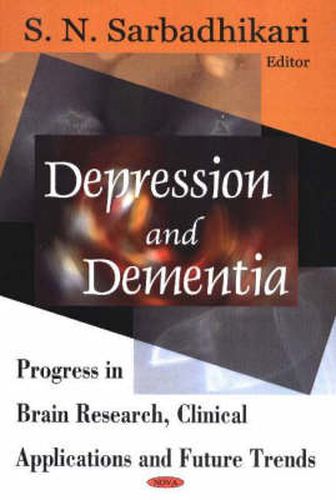Readings Newsletter
Become a Readings Member to make your shopping experience even easier.
Sign in or sign up for free!
You’re not far away from qualifying for FREE standard shipping within Australia
You’ve qualified for FREE standard shipping within Australia
The cart is loading…






Many of the mechanisms of brain action, in health, as well as diseases like depression and dementia, are non-linear. The psychomotor theory can shed some light on the brain-mind-body interaction in health and disease. Specific neurotransmitters through their different receptor subtypes ultimately act along some final common pathway, in a lateralised fashion to produce depression and dementia. The currently available neurochemical and genetic evidences and their correlation with life events from population based studies, may be useful in screening susceptibility to dementia and depression. Further, criteria may be set up for susceptibility to these diseases and they might help designing early interventions in prevention of depression and dementia. The breakdown of the BBB (Blood brain barrier) through Heat Shock Protein (HSP) is also responsible for many neurodegenerative diseases. Aggressive and individualised management of patients suffering from depression and dementia may be the most promising gift of medical science and technology to humanity. Nonlinear dynamic analysis (NDA) of EEG (electroencephalography) may aid in the differential diagnosis of dementias. However, the methodologies have to be standardised further to make it clinically acceptable universally. ERPs (event related potentials in EEG) can be of great help in diagnosis and also assessing prognosis of dementias. Finally, fusion or hybrid techniques, especially those incorporating fMRI or functional magnetic resonance imaging (along with qEEG or quantitative EEG) can be of immense help in diagnosing, managing and predicting the prognosis of depression and dementia. This book discusses the above issues and offers an important update in the area of depression and dementia.
$9.00 standard shipping within Australia
FREE standard shipping within Australia for orders over $100.00
Express & International shipping calculated at checkout
Many of the mechanisms of brain action, in health, as well as diseases like depression and dementia, are non-linear. The psychomotor theory can shed some light on the brain-mind-body interaction in health and disease. Specific neurotransmitters through their different receptor subtypes ultimately act along some final common pathway, in a lateralised fashion to produce depression and dementia. The currently available neurochemical and genetic evidences and their correlation with life events from population based studies, may be useful in screening susceptibility to dementia and depression. Further, criteria may be set up for susceptibility to these diseases and they might help designing early interventions in prevention of depression and dementia. The breakdown of the BBB (Blood brain barrier) through Heat Shock Protein (HSP) is also responsible for many neurodegenerative diseases. Aggressive and individualised management of patients suffering from depression and dementia may be the most promising gift of medical science and technology to humanity. Nonlinear dynamic analysis (NDA) of EEG (electroencephalography) may aid in the differential diagnosis of dementias. However, the methodologies have to be standardised further to make it clinically acceptable universally. ERPs (event related potentials in EEG) can be of great help in diagnosis and also assessing prognosis of dementias. Finally, fusion or hybrid techniques, especially those incorporating fMRI or functional magnetic resonance imaging (along with qEEG or quantitative EEG) can be of immense help in diagnosing, managing and predicting the prognosis of depression and dementia. This book discusses the above issues and offers an important update in the area of depression and dementia.